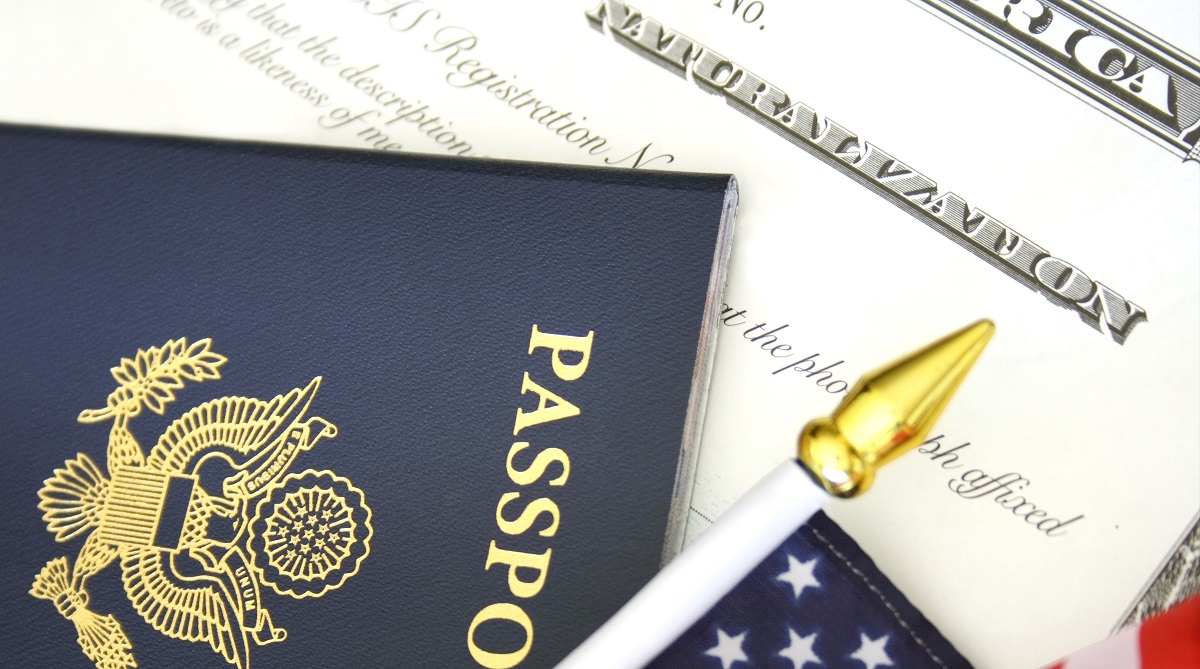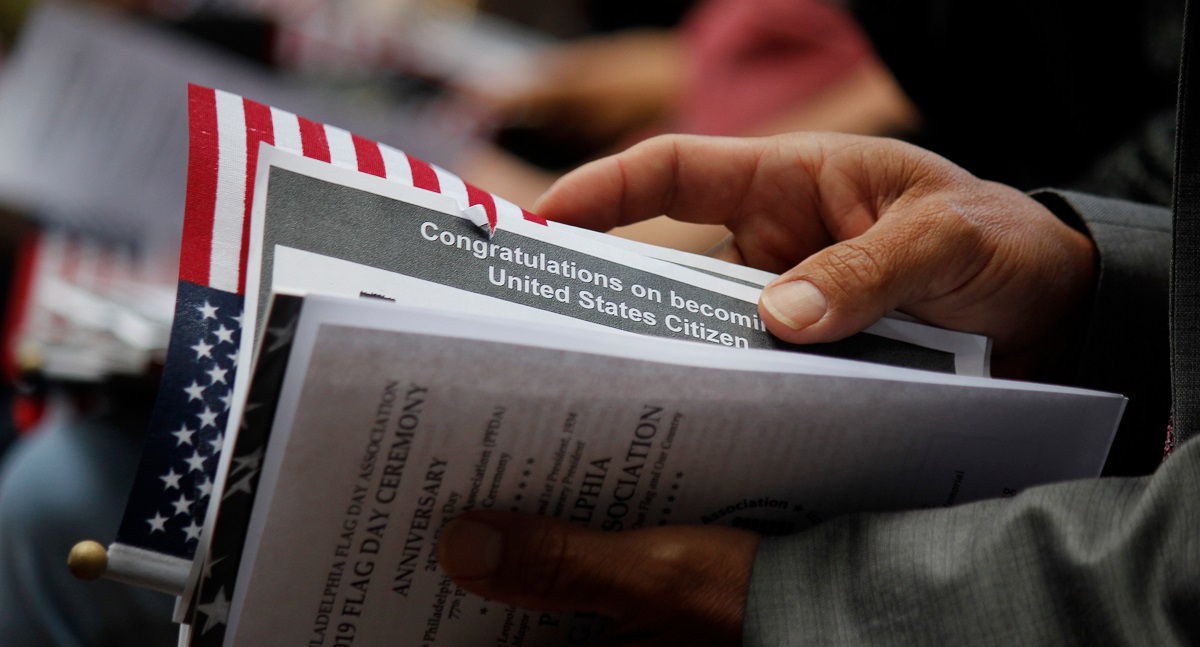
A U.S. passport is a valuable document that facilitates international travel and serves as proof of identity. However, many people mistakenly believe that it is the ultimate proof of U.S. citizenship. In reality, there are significant U.S. passport limitations, especially for those who were not born in the United States. If you are a naturalized citizen or acquired citizenship through your parents, you may need additional documentation to fully establish your status.
5 Examples of U.S. Passport Limitations
- Obtaining Social Security and Other Government Benefits
- Renewing or Replacing a U.S. Passport
- Verifying Citizenship for Future Generations
- Obtaining Federal Student Financial Aid
- Applying for Employment
What You Should Do Instead
Benefits of Citizenship Document
How CitizenPath Can Help
5 Examples of U.S. Passport Limitations
A passport is primarily a travel document issued by the U.S. Department of State. While it indicates that the holder is a U.S. citizen at the time of issuance, it does not provide detailed information about how or when citizenship was acquired. This can create complications in certain situations. Here are some reasons a U.S. passport may not be sufficient:
Obtaining Social Security and Other Government Benefits
Certain government agencies, including the Social Security Administration, may require more than just a passport to confirm U.S. citizenship. If you are applying for Social Security benefits, Medicare, or other federal programs, you may be asked to provide additional proof of when and how you became a citizen.
It's also important for you to update the Social Security Administration of your new status after naturalizing.
Renewing or Replacing a U.S. Passport
A U.S. passport has an expiration date — 10 years for adults and 5 years for minors. If your passport is lost, stolen, or expires, you may need to prove your citizenship to get a new one. If there are discrepancies or missing records, you could face delays or additional scrutiny. Natural born citizens can use a birth certificate, but U.S. citizens who were born abroad generally need a citizenship document that provides an indisputable record of your citizenship, making the renewal or replacement process much easier.
Verifying Citizenship for Future Generations
If you need to establish U.S. citizenship for your children or future generations, a passport alone may not be enough. Citizenship laws can be complex, and a passport does not always serve as conclusive proof for derivative citizenship claims. It's necessary to document how the parent obtained citizenship. A citizenship document provides clear documentation of how and when you became a citizen, making it much easier for your descendants to prove their status.
Obtaining Federal Student Financial Aid
Students applying for federal financial aid through FAFSA and other government programs must prove U.S. citizenship. While a U.S. passport is often accepted, some applicants face additional verification requests or delays due to record inconsistencies.
Applying for Employment
Many employers are required to verify an employee’s citizenship status when completing Form I-9, the Employment Eligibility Verification form. While a U.S. passport is generally accepted, certain employers may request additional documentation, particularly in cases where citizenship status is unclear. Having an official U.S. government document which indicates the date of acquisition provides clear and permanent proof of U.S. citizenship, eliminating potential issues during the hiring process.
What You Should Do Instead
If you were not born in the United States but are a U.S. citizen through naturalization or acquired citizenship through parents, it is recommended that you obtain a Certificate of Citizenship or Certificate of Naturalization. These documents provide the strongest legal proof of your citizenship and include details about how and when you became a citizen. It's the best way to address U.S. passport limitations.
Obtaining a Certificate of Citizenship
If you became a U.S. citizen through parents, you likely need a Certificate of Citizenship. This document is permanent proof of your citizenship. You probably obtained citizenship through parents if you:
- Were born abroad to a U.S. citizen parent; or
- Became a U.S. citizen after birth through a parent that naturalized.
If eligible, you may apply for a Certificate of Citizenship by filing Form N-600, Application for Certificate of Citizenship, with U.S. Citizenship and Immigration Services (USCIS). Your application package should include appropriate supporting documents proving your citizenship claim. While the process can take several months, it ensures you have a definitive, lifelong record of your U.S. citizenship status.
Individuals who want help can use CitizenPath's Citizenship Certificate Package. Designed by immigration attorneys, the service is an affordable way to make sure you qualify and submit the right supporting documentation.
Obtaining a Certificate of Naturalization
If you became a U.S. citizen through naturalization, you would have received a Certificate of Naturalization at the oath ceremony. The certificate is strong proof of your citizenship, and you should keep an original in a safe place. However, if you lose this document, you may replace it by filing Form N-565, Application to Replace Citizenship Document, with USCIS.
Individuals who want help can use CitizenPath's Citizenship Document Replacement Package. Designed by immigration attorneys, the service is an affordable way to make sure you qualify and submit the right supporting documentation.
Benefits of Citizenship Document
A U.S. passport is an excellent travel document but has clear limitations when it comes to proving U.S. citizenship. If you were not born in the United States, securing a Certificate of Citizenship or Naturalization is a smart move. These documents provide permanent proof of your status, making it easier to handle legal, financial, and government matters. They mitigate the limitations of a U.S. passport. Maintaining a copy of one of these citizenship documents is worthwhile because it:
- Never expires; and
- Is direct proof of your citizenship and how it was obtained.
USCIS provides a Certificate of Naturalization to permanent residents who go through the naturalization process. But individuals who obtain citizenship through parents don’t typically get a Certificate of Citizenship. The individual must apply for it. Don’t wait—ensure your citizenship is properly documented today!
How CitizenPath Can Help
CitizenPath provides simple, affordable, step-by-step guidance through USCIS immigration applications. Individuals, attorneys and non-profits use the service on desktop or mobile device to prepare immigration forms accurately, avoiding costly delays. CitizenPath allows users to try the service for free and provides a 100% money-back guarantee that USCIS will approve the application or petition. We provide support for the Petition for Alien Relative (Form I-130), Affidavit of Support (Form I-864), and several other immigration services.
For more immigration tips and guidance, sign up for CitizenPath’s newsletter and stay informed on your rights and benefits as a U.S. citizen.
Want more immigration tips and how-to information for your family?
Sign up for CitizenPath’s FREE immigration newsletter and
SAVE 10%
on our immigration services






